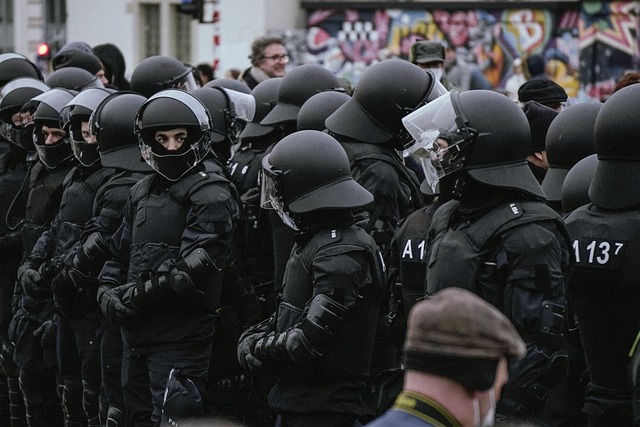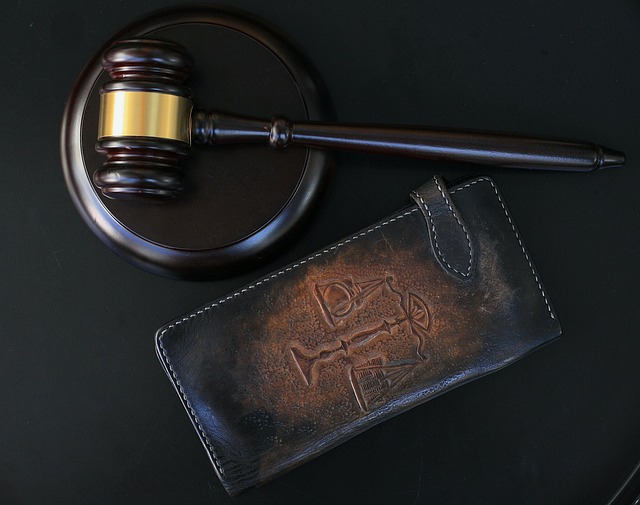Due Process in Criminal Law Cases is crucial for justice and fairness, protecting individuals accused of crimes through lawful evidence presentation, ethical witness treatment, and access to legal counsel. This is especially important in complex cases like white-collar crime, where adherence to procedural rules safeguards both the accused and victims, fostering public trust in the criminal justice system. Key principles include the defendant's rights to be present, confront witnesses, and present evidence, as well as judicial independence and impartiality. Modern challenges such as complex financial crimes require defense attorneys to balance effective enforcement with individual rights protection, advocating for transparent procedures and proportional responses.
In the intricate landscape of criminal law, ensuring due process is paramount. This comprehensive guide delves into the fundamental principles that underpin fair trials, exploring key components vital for justice. From historical perspectives to modern challenges, we unravel the complexities of due process in criminal proceedings. Understanding these elements is crucial for navigating the legal labyrinth and safeguarding individual rights. By examining case studies and current trends, this article offers valuable insights into how due process shapes criminal law cases today.
- Understanding Due Process in Criminal Law Cases
- Key Components of Fair Trial in Criminal Proceedings
- Challenges and Modern Perspectives on Due Process in Criminal Law
Understanding Due Process in Criminal Law Cases
Understanding Due Process in Criminal Law Cases is paramount to ensuring justice and fairness. It refers to the fundamental rights guaranteed to individuals accused of a crime, providing them with a fair hearing and protecting against arbitrary or unfair treatment. This process guarantees that evidence is presented in a lawful manner, witnesses are treated ethically, and suspects have access to legal counsel.
In high-stakes cases, including those involving white collar and economic crimes, due process becomes even more critical. Across the country, these complex cases demand meticulous adherence to procedural rules to safeguard the rights of both the accused and victims. Ensuring that every step is taken in accordance with established legal principles is essential to maintaining public trust in the criminal justice system.
Key Components of Fair Trial in Criminal Proceedings
Ensuring a fair trial is paramount in criminal proceedings, upholding the principles of due process in Criminal Law Cases. This includes several key components that guarantee an individual’s rights and protect against arbitrary or unjust decisions. First and foremost, defendants have the right to be present during their trial, to confront witnesses against them, and to present evidence on their own behalf. This balance ensures a thorough examination of facts and evidence, allowing for a just verdict based on the merits of the case.
Additionally, the independence and impartiality of the judiciary are essential. Judges must remain unbiased, making decisions solely based on the law and presented evidence. In cases involving white-collar and economic crimes, where complex financial transactions may be at play, this impartiality is crucial. An unprecedented track record of fair trials ensures that every defendant receives a just hearing, protecting their rights while holding perpetrators accountable for their actions.
Challenges and Modern Perspectives on Due Process in Criminal Law
The concept of due process in criminal law cases is a cornerstone of any just society, ensuring that every accused person receives fair treatment. However, it faces significant challenges in modern times, particularly with the increasing complexity of financial crimes and corporate investigations. The balance between effective enforcement and individual rights protection is delicate; white-collar defense attorneys play a crucial role here. They navigate intricate legal landscapes to safeguard their clients’ interests, often corporate and individual alike, aiming for achieving extraordinary results while upholding due process.
These cases require a nuanced understanding of the law and its application in an era of advanced technology. Modern perspectives advocate for transparent procedures, prompt investigations, and proportional responses. As society evolves, so too must our approach to due process, ensuring it remains a robust defense mechanism against arbitrary or unfair prosecution while adapting to emerging criminal trends like sophisticated fraud schemes.
In conclusion, understanding and upholding due process in criminal law cases is essential for ensuring fairness and justice. By examining key components of a fair trial and recognizing contemporary challenges, we can navigate the intricate landscape of criminal proceedings. Embracing modern perspectives allows us to strengthen the foundation of due process, ensuring that every individual accused receives a thorough and impartial consideration, thereby fostering a more equitable legal system.






